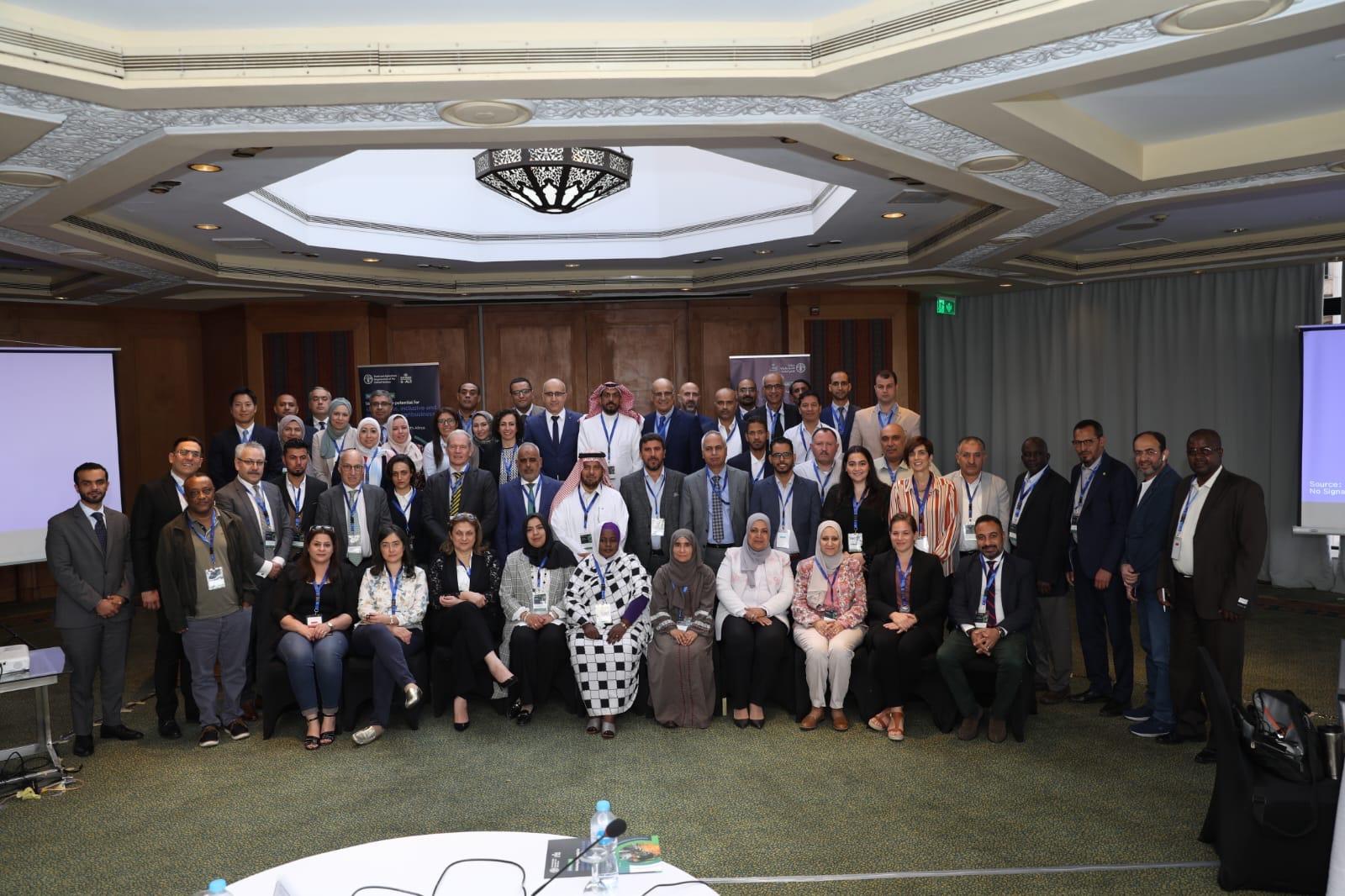FAO Regional technical workshop on “Unlocking the potential for sustainable, inclusive and competitive agribusiness development in the Near East and North Africa”

2 November 2022, Cairo – The Food and Agriculture Organization of the United Nations (FAO) in the Near East and North Africa (RNE) organized a three-day technical workshop to discuss “Unlocking the potential for sustainable, inclusive and competitive agribusiness development in the Near East and North Africa”. The workshop is part of FAO’s efforts in the region to build capacity, encourage knowledge and experience exchange among stakeholders, and promote policy and effective actions towards development of sustainable, inclusive and resilient agrifood value chains in countries.
In his opening remarks, Jean-Marc Faures, FAO Regional Programme Leader for the RNE, reiterated the importance of the topic for the region in face of urbanization and growing demand from consumers for more quality food products and underlined the potential of the sector in generating decent employment and income for rural communities.
Agribusiness from post-harvest practices, processing and distribution to food services have long contributed to value addition in agriculture sector and generation of employment particularly for women and youth. However, the sector has often been overlooked in both policy decisions and research and development work in the region. The recent studies illustrate that agribusiness SMEs in the NENA are facing many barriers in fulfilling their full potential. To name a few; limited availability of skilled labor; low access to primary inputs including packaging materials and machineries; access to finance and limited support by enabling environment for investment; low capacity to comply with food safety and quality requirement of high value markets ; inadequate infrastructure; and low levels of entrepreneurial and innovation capacity of agribusiness start-ups.
If not sustainable, agribusinesses could significantly contribute to climate change. Globally, about 20% of agrifood GHG emissions occur in agribusiness activities and in NENA, with CO2 emissions through food transport had continuously increased by 12% between 2012 and 2019. The share of renewable energy in the region is only 6%, which is extremely lower than in other regions such as Sub-Saharan Africa (40%). Agribusinesses in the region should be aware of their environmental and climate foot print and be incentivized to mitigate the impact of their operation on climate change.
To respond to these issues, the workshop aimed at gaining insight from the multiple stakeholders across the region on the barriers and opportunities for participation of agribusiness SMEs in agrifood systems policymaking in NENA; identifying the priorities for capacity development for agribusiness SMEs, and surrounding institutional and legal frameworks to be more sustainable, inclusive and competitive; and encouraged sharing best practices for building effective partnerships and coordination mechanisms among stakeholders at national and regional levels.
The discussions were structured to address five key thematic areas, which are crucial for enabling agribusiness SMEs to be more sustainable, inclusive and competitive - finance and investment; start-ups and innovation; improving food safety and quality for better access to market; institutional capacity, partnership and policy environment; as well as promotion of gender inclusion and greening agribusiness operations.
The multi stakeholders and regional nature of the workshop saw the active participation and high engagement of both public and private sectors from 16 countries, as well as international financial institutions and development agencies in the NENA region. The participants shared their strategies and action plans around the thematic areas, country and context -specific challenges, their needs and what they perceive as effective solutions in lifting up agribusiness SMEs in countries.
Highlighting the importance of the agribusiness SMEs for FAO’s work on agrifood systems transformation Maryam Rezaei, Agro-industry Officer in FAO-RNE stated: “Increasing the capacity and practices of these value chain actors will bring growth and prosperity to rural communities, while improving their resilience to shocks and climate variability”.
The workshop was the first and a significant step to share knowledge, increase awareness, engage regional actors, and reflect the views from the countries on identifying priorities for FAO’s targeted program to build capacity and support policy and investment for sustainable agribusiness development in the Near East and North Africa.
